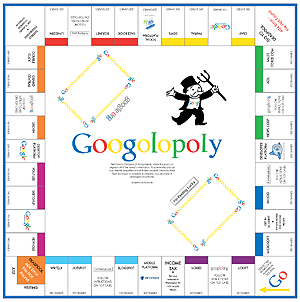A U.S. district judge ruled that Google illegally used its market power to create a monopoly over online search, a decision that could significantly impact various industries, including travel. The top four online travel agencies spent $16.8 billion on sales and marketing last year, much of which went to Google.
Travel companies have long complained about Google’s dominance in digital search and advertising. During an antitrust trial last year, a 2019 letter from Expedia Group chairman Barry Diller was revealed, where he expressed frustration with Google’s practices.
“I’m on the edge of revolt now that Google’s actions are so punitive, not just for Expedia but for all players that rely on a level playing field,” Diller wrote.
U.S. District Judge Amit Mehta echoed this sentiment, declaring in his 277-page ruling, “Google is a monopolist and has acted as one to maintain its monopoly.”

The judge found that Google violated the Sherman Antitrust Act by paying billions to smartphone manufacturers like Apple and Samsung to make Google the default search engine on their devices.
Jonathan Kanter from the Justice Department called this a landmark decision, saying it paves the way for innovation and protects access to information for all Americans.
Google plans to appeal the ruling. Kent Walker, Google’s president for global affairs, argued, “This ruling acknowledges that Google provides the best search engine but concludes that we shouldn’t make it easily accessible.”
The ruling only determined that Google violated antitrust laws. A separate proceeding will decide what actions should be taken, ranging from changes in business practices to possibly breaking up parts of Google’s business.
Another federal trial is scheduled for September to address Google’s advertising technology, which is also alleged to be a monopoly.
Travel professionals largely support the ruling. Brennan Bliss, CEO of Propellic, a digital travel marketing agency, believes it could lead to lower advertising costs and new opportunities on platforms like Bing and DuckDuckGo.
Max Starkov, a hospitality and technology consultant, thinks any immediate impact will be minimal due to appeals. He predicts that in the mid-term, Google’s exclusive contracts with platforms like Apple will be revised.
In the long term, Starkov sees generative AI search engines, like OpenAI Search, as potential competitors. However, he questions whether these new engines will attract users away from Google, which currently dominates with 82 billion visits per month.
Christian Watts, CEO of Magpie, commented that while Google’s deals with Apple weren’t illegal, monopolies are harmful. He expects legal battles to continue for years, possibly leading to a settlement and changes in search infrastructure due to AI.
The Justice Department filed the antitrust suit in 2020, arguing that Google’s payments to secure its search dominance denied competitors a fair chance. The judge found that Google’s control over search data allowed it to raise advertising prices with little restraint.
Travel companies have voiced concerns for years. In May 2020, then-CEO of Expedia Group, Peter Kern, admitted that the company was overly reliant on Google. Tripadvisor’s then-CEO, Steve Kaufer, also noted that Google’s tactics were cutting into earnings.
Rod Cuthbert, Viator founder, predicted that Google would eventually face scrutiny for its monopolistic practices. Reflecting on the ruling, he said, “The court confirmed what we already knew: Google is a monopoly and acts like one. But now what? With AI-driven changes coming, the search industry is in for a major shakeup, regardless of this ruling.”
Source: Phocuswire






